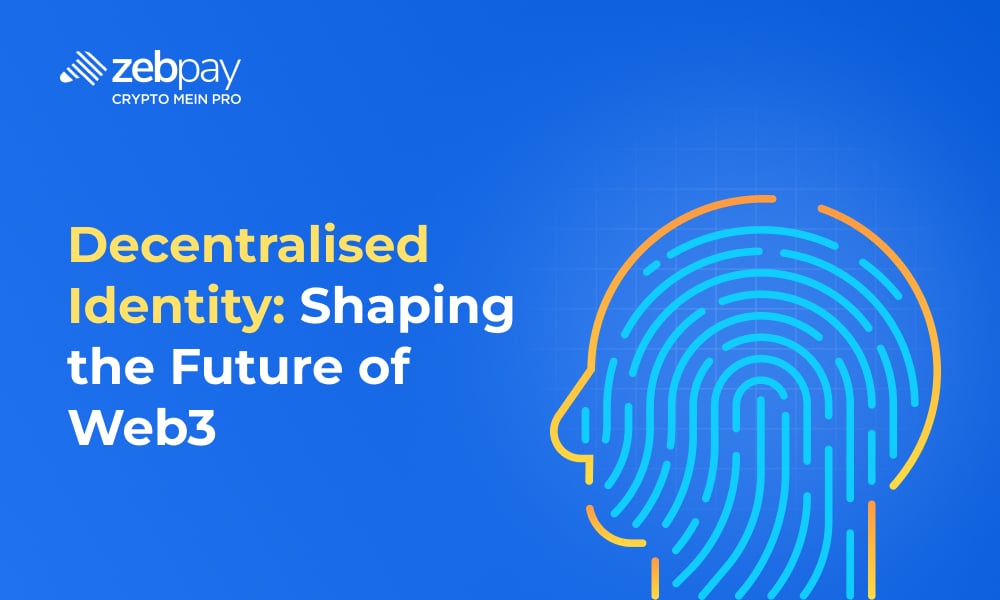In an increasingly digital world, identity management is at the core of our online transactions, which remains plagued by breaches, fraud, and lack of user control. To curb that, Decentralised Identity (DID) is rapidly emerging as a transformative solution within the Web3 ecosystem, empowering individuals to manage their digital identities securely and autonomously. According to Statista, a database company, as of October 2024, there were 5.52 billion Internet users worldwide, which has increased the demand for trustless, privacy-first systems. As the global digital identity market is projected to grow at a 16% compound annual growth rate (CAGR) for the 2025-30 period, with insights from Grand View Research, a market research firm, the shift towards decentralised solutions highlights the growing demand for systems that prioritise user control and trust. This paradigm shift is poised to redefine how identities are created, authenticated, and shared in the decentralised future.
What is Decentralised Identity?
- Definition: DID is a blockchain-based framework enabling individuals to own, control, and share their digital credentials securely without relying on centralised authorities.
- Core Principle: Self-sovereignty, where users retain control over their identity data.
- Key Components:
- Decentralised Identifiers (DIDs): Unique identifiers verified on blockchain networks.
- Verifiable Credentials: Cryptographically secured attestations of identity attributes.
- Identity Wallets: Digital tools for storing and managing DIDs and credentials.
Key Projects Driving Decentralised ID Solutions
| Project | Description | Blockchain |
| Microsoft ION | Open, decentralised identity layers for managing DIDs on Bitcoin. | Bitcoin |
| Sovrin Network | A global public utility for self-sovereign identity. | Hyperledger Indy |
| Spruce | Offers decentralised authentication and data storage tools. | Ethereum, Tezos |
| Polygon ID | A zero-knowledge-based DID system for scalable Web3 identity. | Polygon |
| uPort | Enables user-controlled identities for decentralised apps (dApps). | Ethereum |
Use Cases in Privacy, Authentication, and Ownership
- Privacy:
- Protects sensitive user data by sharing only the necessary credentials.
- Enables pseudonymous transactions in decentralised finance (DeFi).
- Authentication:
- Replaces passwords with verifiable credentials for secure logins.
- Simplifies multi-platform access using interoperable identity standards.
- Ownership:
- Empowers users to own their personal data and digital assets.
- Ensures provenance and authenticity in non-fungible tokens (NFTs) and digital goods.
Benefits Over Traditional Identity Management Solutions
| Aspect | Decentralised Identity | Traditional Identity |
| Control | User-controlled, self-sovereign. | Institution-controlled. |
| Security | Blockchain-backed, tamper-resistant. | Vulnerable to breaches and hacks. |
| Interoperability | Cross-platform and global standards. | Limited to specific systems. |
| Privacy | Selective disclosure of data. | Often requires sharing full data. |
| Cost Efficiency | Reduces reliance on intermediaries. | High costs for third-party services. |
Challenges to Adoption in a Web3 World
- Interoperability Issues: Limited standardisation across blockchain networks.
- Scalability: Blockchain scalability constraints may impact DID adoption at scale.
- Regulatory Concerns: Lack of global regulatory frameworks for decentralised identities.
- User Accessibility: Complexity of managing wallets and keys can hinder mass adoption.
- Data Portability: Ensuring seamless migration of identity data across platforms.
Future Outlook
- Advancements in Zero-Knowledge Proofs: Enhancing privacy in identity verification.
- Interoperable Frameworks: Collaboration between Web3 projects for unified standards.
- Integration with IoT: Expanding DID use cases to secure connected devices.
- Mass Adoption in Enterprises: Leveraging DID for workforce and customer identity solutions.
Conclusion
Decentralised Identity is set to redefine the foundation of trust, privacy, and ownership in the Web3 era. By empowering individuals with self-sovereign control and addressing critical challenges like security and interoperability, DID offers a robust framework for a decentralised future. While hurdles remain, continued innovation and collaboration will unlock its full potential, transforming how we manage identities in the digital age.
Keep yourself ahead of the crypto curve with ZebPay blogs. Click on the button below and see why millions trust ZebPay with their trading needs!



